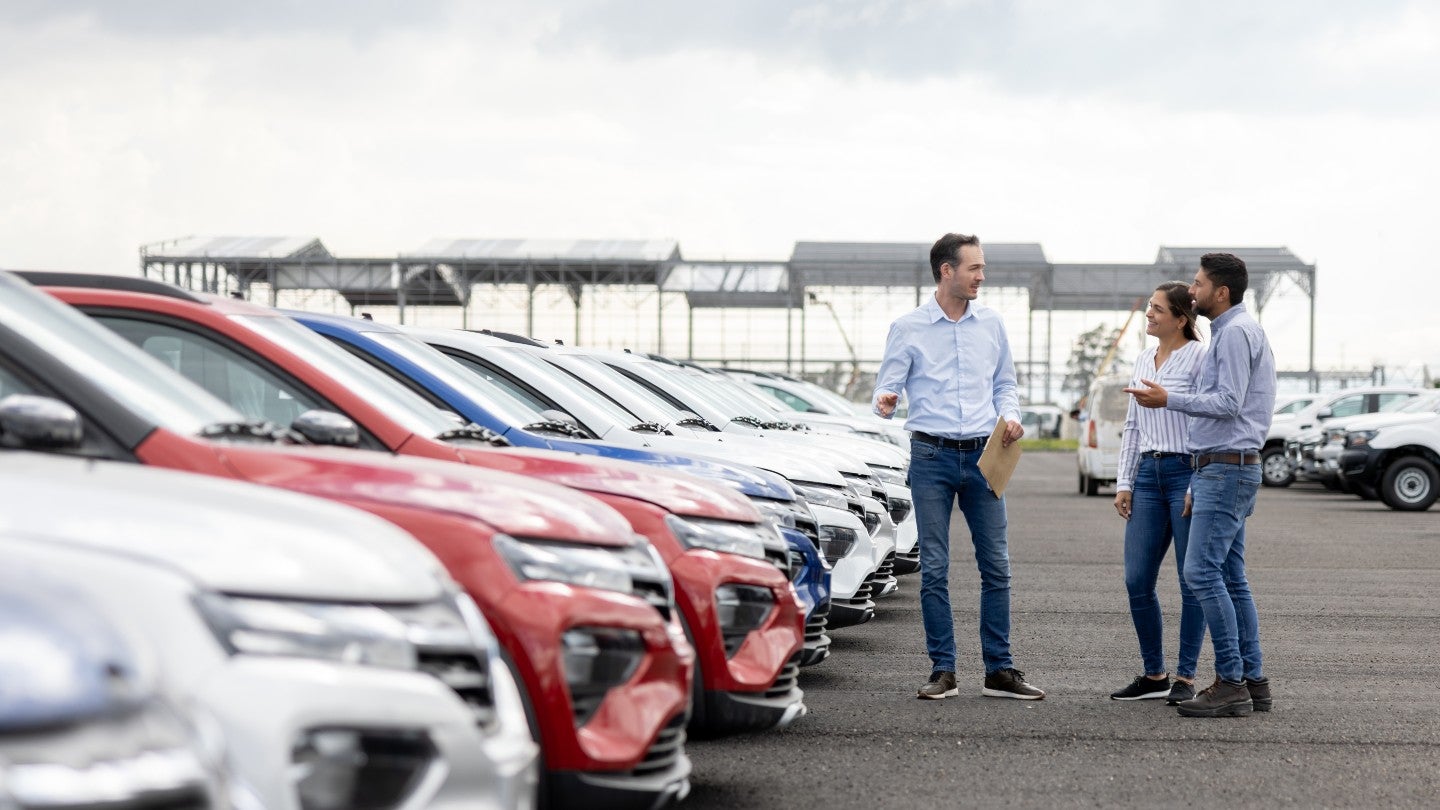
News of Hyundai’s partnership with Amazon, set to kick off in 2024 in the US, has raised questions about the potential transformation of the traditional car dealership market. Retail car buyers will soon be able to purchase Hyundai vehicles directly from the Amazon marketplace, signalling a shift in Original Equipment Manufacturers’ (OEMs) strategies to engage more directly with consumers, especially in the realm of e-commerce.
Motor Finance Online spoke with Philip Nothard, Chair of the Vehicle Remarketing Association (VRA), about what this collaboration could signify for the UK market.
Nothard believes that, in the short to medium term, traditional car dealerships in the UK need not be overly concerned. However, he said the partnership underscores OEMs’ ambitions to establish a more direct connection with consumers, particularly in the rapidly evolving e-commerce landscape.
What this means for the dealership market
Hyundai is not the first OEM to partner with Amazon, Nothard explained that back in 2016 Fiat Chrysler Automobiles partnered with Amazon to sell three models- the 500, Panda and 500L to buyers in Italy and in 2018 Volvo offered test drives of select vehicle models via Amazon’s Prime Now.
Whilst the consumer market was not ready for these moves in 2016, now in 2023, customers especially the younger generations are more willing to make bigger purchases online through e-commerce marketplaces like Amazon. Nothard explains that the pandemic perhaps accelerated the move to online retailers ten to fifteen years from how it would have naturally progressed.
Nothard outlined that the market still isn’t ripe yet, stating: “The connection to E-commerce isn’t there yet and the confidence from the majority of the consumer isn’t there yet for the dealers to really worry”. He suggested that this move is likely OEMs testing potential for it in that market. Nothard estimated that currently less than 10% of new and used cars are purchased entirely online, indicating limited potential in the short and medium term for car dealerships to become obsolete.
How well do you really know your competitors?
Access the most comprehensive Company Profiles on the market, powered by GlobalData. Save hours of research. Gain competitive edge.

Thank you!
Your download email will arrive shortly
Not ready to buy yet? Download a free sample
We are confident about the unique quality of our Company Profiles. However, we want you to make the most beneficial decision for your business, so we offer a free sample that you can download by submitting the below form
By GlobalDataDespite the current impact being confined to the US, it is only a matter of time before it’s rolled out in the UK and the rest of Europe. Nothard advises car dealerships to anticipate market evolution and prepare for potential changes, especially given that the European and UK markets have more purely online sales than the US.
Financial complexity of car ownership
Given the financial ties of car ownership, compared to many of the other items consumers are buying from the Amazon marketplace, car dealerships will retain market share as people want to see the car model in person and talk to someone they trust before making such a big purchase.
Due to this, Nothard views the threat of online marketplaces like Amazon to car dealerships to be small in the short term, he explained “the car remains a significant household expenditure from anybody and it’s a very subjective personal purchase as well”, he added “So there is an element of – I want to know the person I’m buying that vehicle from, I want to know the business I’m buying it from, I want to trust that business where I’m buying that vehicle from.” This means there will still be demand for car dealerships over impersonal online purchases.
Target market of consumers
Nothard noted that there will still be a demand for those wanting part exchange which the Amazon marketplace won’t be able to service, explaining “Buying a car adds further complexity in terms of optional items, finance, part exchange, part exchange valuation”. Currently, only dealerships have the expertise to deal with the valuation of vehicles, part exchange and arranging finance plans for buyers.
The expected consumer demographic for the purchase of new cars off an online marketplace is expected to be the upper middle class, like those who bought Tesla and Polestar when they first became available in a purely digital space. The potential consumers will be those with the finance to buy a car outright without having to consider financing or part exchange. For these transactions, traditionally car dealerships will still have a very active role to play. Equally, those looking to purchase very high-end luxury vehicles will still want the personal connection and expertise to guide their purchasing experience.
Nothard explained that presently there is a range of approaches as to how consumers feel about purchasing vehicles purely online, he said: “Some people want to operate purely online and have no interaction with the dealer at all. Some want interaction with dealers”.
As the market has matured and as cars are a lot more standardised in quality, Nothard noted people find it easier to buy a model from an online marketplace if they know what they want in advance.
The future of car dealerships
Nothard explained that dealers have the “operational expertise” that OEMs are currently lacking. Despite being insulted in the short term, Nothard highlighted that as the market is shifting quickly, dealers need to embrace that the industry is operating very differently than it did ten or twenty years ago, he commented “you just can’t be dismissive of these kinds of things because you just don’t know what direction it’ll lead. The market is shifting very, very quickly, and we need to accept that”.
Autumn Statement 2023: Mixed reaction by dealerships and fleets







